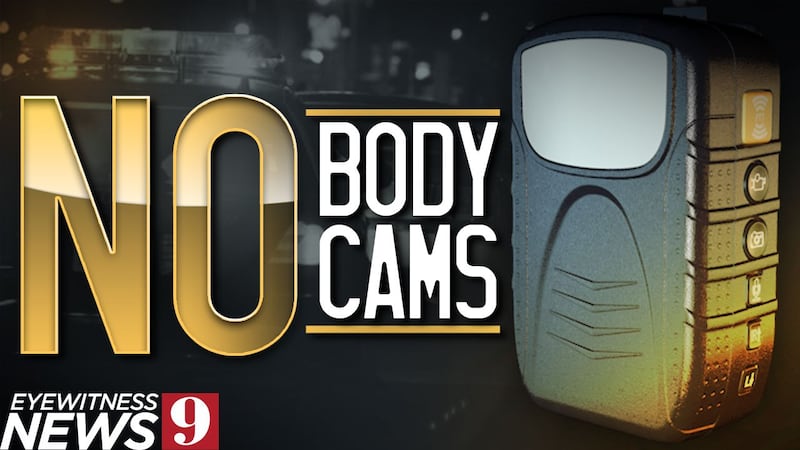ORLANDO, Fla. — A police department that deploys body-worn cameras is making a statement that it believes the actions of its officers are a matter of public record.
That’s what the executive director of the Police Executive Research Forum said in a report commissioned by the U.S. Department of Justice six years ago.
Investigative Reporter Daralene Jones uncovered that there still are dozens of agencies throughout the state without cameras, and there is no law in Florida requiring agencies to change that.
Jones started looking into the issue when Clermont police said it recently outfitted all of its officers with body cameras.
The city council first discussed adding cameras three years ago. “Personally, I view it as a great insurance policy for the citizens and the city,” Councilman Jim Purvis said.
Clermont Police Chief Charles Broadway, who is also on the board of the Florida Police Chiefs Association, told us the pros outweigh the cons.
“It brings about accountability. It brings about transparency, safety for the officers and communities,” Broadway told Jones.
When the Police Executive Research Forum studied the use of body cameras, it interviewed more than 40 police executives who have experience with body-worn cameras, reviewed more than 20 body-worn camera policies submitted by police agencies, and hosted a one-day conference in Washington, D.C., where more than 200 police chiefs, sheriffs, scholars, federal justice officials, and other experts discussed their experiences with body-worn cameras, according to the organization.
According to PERF: Among police executives whose departments use body-worn cameras, there is an overall perception that the cameras are a useful tool.
Those interviewed by PERF reported that cameras help with the following:
-Strengthening police accountability by documenting incidents and encounters between officers and the public
-Preventing confrontational situations by improving officer professionalism and the behavior of people being recorded
-Resolving officer-involved incidents and complaints by providing a more accurate record of events
-Improving agency transparency by allowing the public to see video evidence of police activities and encounters
-Identifying and correcting internal agency problems by revealing officers who engage in misconduct and agency-wide problems
-Strengthening officer performance by using the footage for officer training and monitoring
-Improving evidence documentation for investigations and prosecutions
Despite the advantages, there remain 130 Florida police agencies, about two dozen in Central Florida, without that layer of accountability and transparency, mostly concentrated in Polk, Lake and Brevard counties.
Video: Osceola County leaders discuss relationship between students, school resource officers
Additionally, about half of the state’s 76 sheriffs’ departments do not have cameras.
Lake County is in the process of outfitting deputies with the devices, which will leave Brevard and Polk counties as the only agencies without them.
For some smaller agencies, cost is an issue.
“Some of it is cultural. You’re going back to being surveilled, and you have a lot of officers that are very uncomfortable with that,” said Matthew Puckett, executive director of the Florida Fraternal Order of Police.
In Brevard County, the sheriff has been vocal about his resistance to cameras, publicly stating last June that even if county commissioners increased the department’s budget by $3.2 million, he would use it for school resource officers, not body cameras.
The comment comes despite two incidents last year that led to new questions from the public about why the agency doesn’t have cameras. In one of the incidents, two teenagers were shot and killed as they drove away from a deputy.
Some state lawmakers have proposed legislation that would require body cameras, but it stalls out every year—and those who represent the law enforcement community already are preparing to fight it again this year.
“We are strong proponents and support body camera programs for police agencies,” Broadway said. “But we don’t support a mandate for agencies to have a body camera program—may not be in their budget. You have to think about the costs associated specifically with the retention, body camera footage has to be stored for 90 days, and that’s barring any investigation,” Broadway said.
Click here to download the free WFTV news and weather apps, and click here to watch the latest news on your Smart TV.
Cox Media Group









